
Over the many years, I have relocated constantly from one town to another. At one point, I had moved 12 times in ten years. The purpose behind for such a nomadic lifestyle has always been for educational and career opportunities. As such, reestablishing myself in a new playgroup has always been difficult process to constantly repeat over and over. It got to the point I felt like I was always having Deja vu. Believe me when I say this, I have spent a lot of time thinking about this subject and then some more.
Finding fellow players have always been one of the biggest obstacles for the game. You can’t exactly go door-to-door or stopping every person on the street to ask them if they play Magic. If your town doesn’t have a store, you might as well pack your cards in a box and put them in the back of the closet for brighter days. Forums are quite worthless for physically connecting with other players. Every move results in the following actions of having to find a hobby shop, travel to said shop or shops, and in reality, playing Russian roulette trying to find a play group. Sure, Friday Night Magic is great for finding human beings in a competitive environment, but discovering a casual group is mythical.
After some long thought, I came to the realization the greatest deficiency for the continual growth of the game is our lack of organization. I often find it quite scary how analogous organizing Magic players are like herding cats. We are extremely intelligent, highly independent, and tend to resist some instances of authority. I am reminded of this every time I watch a tournament organizer desperately trying to get everyone together to start a FNM at 7:00 when it should have started at 6:00. This usually leads to a long night and my wife being a wee bit upset at the fact I am getting home so late.
Alpha Beta Beta
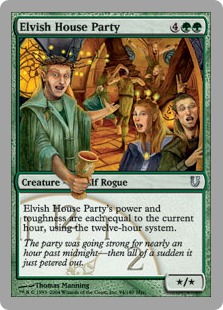
Many have a lot of negative stereotypes of fraternities. Truth be told, some of them are true. It all depends on the fraternity, city and etc. However, the crux of the matter relevant to this discussion is that it offered me camaraderie. It gave me a connection to other fellow human beings at a deeper level. It gave me a purpose. It allowed me to grow beyond my own small perception of the world. It is hard to explain if you have never been part of an organization with a larger purpose. My example is fraternal, but this holds true for any other recognizable body whether its the armed forces, 4-H, boyscouts, girlscouts, Knights of Columbus, and other affluent organizations. It’s an ethereal bond.
In my optimism, clubs would create a bonding between players that we don’t currently have at our FNM or kitchen table. As of now, most playgroups are an unidentifiable bunch of people getting together. In the present, you are part of nothing. You attend a store. A simple name brings with it a purpose. It gives it substance. A name can give a sense of pride. Wouldn’t it be better to say you are a member of the Serra Angel Clan? As of now, you can only say that you attend Friday Night Magic at Chad’s Cardshop. If somebody new came into the store, what are they joining? Nothing, nada, zilch. With an established club, that new person could come into a new location and join the Serra Angel Clan. That person could go home and tell his/her spouse that they joined the Serra Angel Clan instead of saying they went to some store and met some people.
Visions
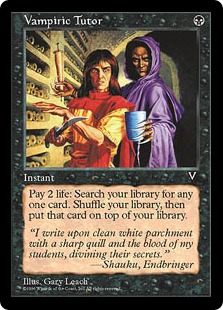
I show up at the local venue. After introducing myself as a new player to the area to the store clerk, he/she gives me a phone number/email of the local clubs recruiter. I purchase some product and head home to contact the mysterious recruiter. The recruiter gives an immediate reply on the phone and we chat about my interests in the game. I inform him/her that I do enjoy playing competitively, but also have a strong desire to find a group of players for some games of multiplayer madness. We make arrangements for me to show up at the shop this Saturday. I arrive and the recruiter introduces me to some of the casual players in the area. We chat, play a few games, and they inform me that they mostly play on Sundays at seven in the evening at a room on the college campus. Later on in the evening, the recruiter informs me of the name of the local clan and the fact they meet on Saturdays at eight at night. Later that Saturday night, I go to the meeting where they introduce me to the members. After the meeting a few of them invite me out for a bite to eat to talk more about my interests and it turns out to be a very genuinely good time.
Now, wasn’t that better than just randomly showing up at a shop and praying that you find somebody else to play Magic with in your same area of interests?
Dependency
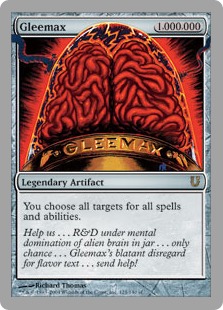
Besides the closing of a store, it is equally annoying to me that the store is the epicenter of the Magic community. This is very evident if you relocate to a new area. Where do you go to meet new players? The journey begins with a phone book or Internet search to find a store. Even worst, what if there isn’t a store? What then? From experience, it is virtually impossible getting connected with a play group. In my earlier years, I remember searching forums and other Internet sites to no avail.
It boggles my mind at the difficulty at connecting with other players. I utterly feel in my gut that it shouldn’t be this arduous of a task. If you are a tournament-loving spike, it is a little easier with the existence of the FNM. If you are not a tournament-loving spike, trying to find a group of casual players is infinitely more problematic. It saddens me to think of the numerous other players out there who can’t connect with other Magic fanatics. I’ve been there. The journey can be a long one. This is definitely heartbreaking when I think of all the hours I searched for fellow brothers in arms when I could have been spending that time having fun, laughing, and slinging spells.
Structurally Sound
With age, I have learned a person can only do so much. A single individual can’t mentor, judge, organize a tournament, and recruit new players. It is simply too much for anybody to take on or it will take a drastic toll on their life. A club helps to alleviate this burden by spreading many of these tasks across its members. This is why there would be a president, vice, treasurer, recruiter, and committees in any given governing body. Each would have a specific role to fill and have the opportunity in showcasing their skills in these endeavors.
Below is a suggested simplified mockup of an imaginary club hierarchy.
President
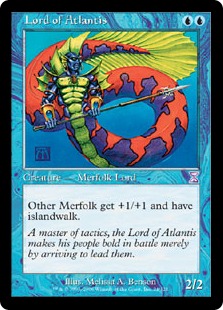 Duties would include breaking any tie votes, managing other executive board members, committees, and the running of the club’s meetings. Basically, the President would ensure everything within the organization runs as smoothly as possible. This may include helping certain players resolve grievances between each other.
Duties would include breaking any tie votes, managing other executive board members, committees, and the running of the club’s meetings. Basically, the President would ensure everything within the organization runs as smoothly as possible. This may include helping certain players resolve grievances between each other.
Vice-President
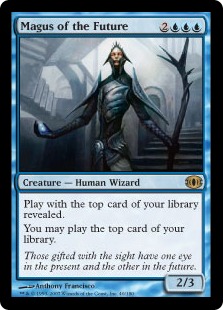 Duties will include any activities that interact with a local store manager, vendor, or sponsor. This will eliminate the multitude of players interacting with the store manager. Having one position also allows the club to have more influence. It's one thing to have a bunch of players asking for a Legacy tournament. It's another when one person approaches the store manager with the proposal that there are 16 people in the club who have committed to a Legacy tournament on Saturdays.
Duties will include any activities that interact with a local store manager, vendor, or sponsor. This will eliminate the multitude of players interacting with the store manager. Having one position also allows the club to have more influence. It's one thing to have a bunch of players asking for a Legacy tournament. It's another when one person approaches the store manager with the proposal that there are 16 people in the club who have committed to a Legacy tournament on Saturdays.
Secretary
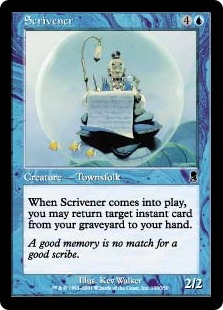 Maintains record of all meeting minutes (possibly emailing to members), club members’ contact info, possibly any reporting to the DCI, and any other records pertinent to the club. Thee most important aspect of this position will probably revolve around contact information and emails. It may seem trivial, but keeping all members update and connected will help hold the club together.
Maintains record of all meeting minutes (possibly emailing to members), club members’ contact info, possibly any reporting to the DCI, and any other records pertinent to the club. Thee most important aspect of this position will probably revolve around contact information and emails. It may seem trivial, but keeping all members update and connected will help hold the club together.
Treasurer
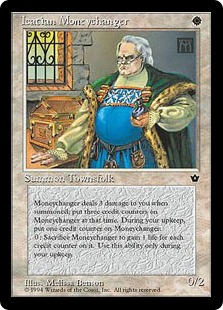 Primary duties are keeping of any financial activities of the club. This may include any fundraising activities, tournaments, or etc. This position may or may not be necessary. It may all depend on the depth, scope, and ambition of an individual club.
Primary duties are keeping of any financial activities of the club. This may include any fundraising activities, tournaments, or etc. This position may or may not be necessary. It may all depend on the depth, scope, and ambition of an individual club.
Recruiter
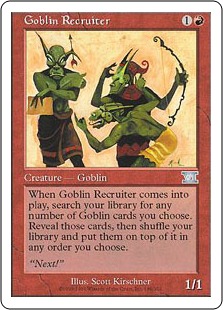 Responsible for welcoming and recruiting of any new Magic players to the club to make the transition as simple and easy as possible. It may also be one of the most important roles. The person doesn't have to be the most resident expert. He/she should simply be charming and above all, predominantly active and present within the organization.
Responsible for welcoming and recruiting of any new Magic players to the club to make the transition as simple and easy as possible. It may also be one of the most important roles. The person doesn't have to be the most resident expert. He/she should simply be charming and above all, predominantly active and present within the organization.
Committees


Secretary

Treasurer

Recruiter

Committees
Social Committee
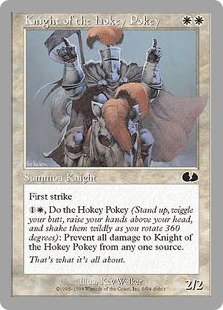 The sole purpose of this position is to bring activities other than Magic to the club. Examples could include bowling, pizza, going to the movies. It's a great way to show younger players that the club has more to offer than just Magic.
The sole purpose of this position is to bring activities other than Magic to the club. Examples could include bowling, pizza, going to the movies. It's a great way to show younger players that the club has more to offer than just Magic.
Tournament Committee
 Develops, organizes, and proposes tournaments. This role isn't meant to overtake the store-owner or tournament organizer if present. This person should more or less assist the VP and TO. The chair should also, more or less, be a voice for the tournament players.
Develops, organizes, and proposes tournaments. This role isn't meant to overtake the store-owner or tournament organizer if present. This person should more or less assist the VP and TO. The chair should also, more or less, be a voice for the tournament players.
Casual Committee
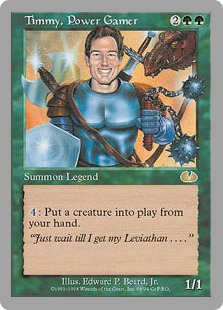 A committee for any play that is not sanctioned by the DCI. Well, basically anything could fit in this role. The chair of the committee would be the active voice for the casual portion of the club in meetings and to the store-owner.
A committee for any play that is not sanctioned by the DCI. Well, basically anything could fit in this role. The chair of the committee would be the active voice for the casual portion of the club in meetings and to the store-owner.
Mentor Committee
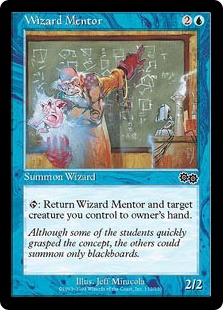 The chair and the committee would be a group of individuals interested in coaching tournament and casual players about the game. This may include the rules of the game pertaining to Floor Rules, Card Rules, or other tournament level questions, deck building, and any other Magic related questions.
The chair and the committee would be a group of individuals interested in coaching tournament and casual players about the game. This may include the rules of the game pertaining to Floor Rules, Card Rules, or other tournament level questions, deck building, and any other Magic related questions.

Tournament Committee

Casual Committee

Mentor Committee

Simplicity
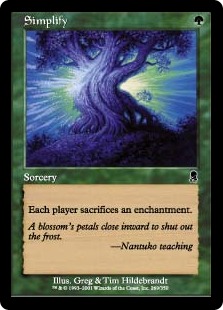
I could go on and on about the benefits that could amount to three articles worth of content. The list would be long. The cons: few. What we don't need is a complicated acquisition plan, guru program, or any other nonsense. You know, stuff that doesn't work. What we need is stuff that works.
To me, clubs are an elegant solution because of their flexibility. Every area will have different needs due to the population, facilities, and the fact Magic is played around the world. The casual crowd in Seattle might prefer to play cards at a local coffee shop compared to the Irish who would rather play in a Pub. It’s whatever the members decide. Plain and simple.
Utopia
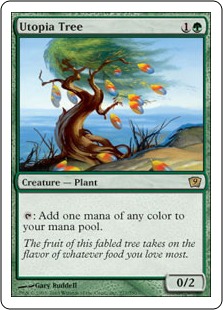
The other functions of the site would include having a section to list the various clubs. A person visiting the site could look up a club in an area and find the information necessary to contact the local recruiter. Ideally, it would be great to form it in a way to keep information anonymous with a system comparable to Craig's List or other forwarding systems.
Wizards
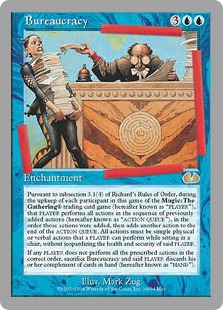
The existence of a club is by no means for the formation of an entity to thwart Wizards or stores. Clubs would exist for the sole purpose of supporting our local play groups. That’s all. It would be my hope that clubs would maintain a healthy relationship with its local store and Wizards. Dare I say, I hope there would be a partnership between the various organizations? Each would play its part in the Magic ecosystem.
Disclaimer

Wrapping this all up, every time I see a new initiative being rolled out by Wizards, I have to roll my eyes. It isn't because the program is shoddy, has delinquincies, or something else. Some showed promise. Regardless, I ask myself why we are constantly trying to reinvent the wheel when clubs have proven themselves as an effective way to connect people with similar interests or motives for centuries?
Finally, clubs are fun!
Derrick "Meyou" Heard
Comments